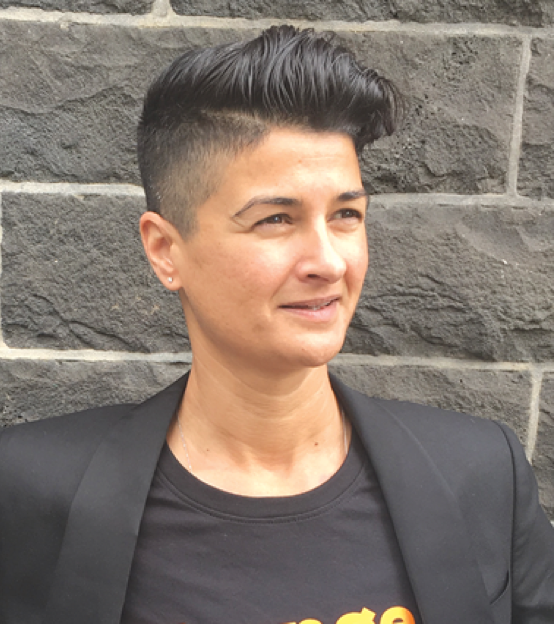
Sophie Ismail, ACTU Legal and Industrial Officer, Gender and Equality, is sounding the alarm on how the coronavirus pandemic is exacerbating inequities for women.
Ismail (pictured above) spoke with IEUA Assistant Federal Secretary Christine Cooper in a wide ranging conversation as part of the IEU’s Women’s Conference 2020. Like many events throughout the world this year, the annual conference had to move online.
Ismail began her career as an industrial officer in the IEU’s QNT Branch, then the VicTas Branch. She is dedicated to gender equity and human rights at work and has represented unions and union members in education, training and health in underpayment cases, workers’ compensation claims, discrimination and sexual harassment cases and enterprise agreement negotiations.
Despite some advances for women over recent years, including the International Labour Organisation’s Convention on Violence and Harassment (Ismail was a party to the negotiations), and some narrowing of the gender pay gap, Ismail says there are four key issues that warrant our immediate attention so women’s rights don’t go backwards.
Unpaid care work
“Australian women do most of the domestic work, volunteering and caring work – all unpaid,” Ismail said. “This has an impact on their employment and they suffer financial consequences.”
The pandemic, she says, has only accelerated this trend. “Women are doing an average of six hours per day of additional care work, along with an extra hour of housework. And many have paid jobs as well. When do they fit it in?!” she asked. What is urgently required, she says, are policies that specifically address this disproportionate workload for women.
Violence and harassment
Research already shows that during periods of emergency, women are at greater risk of violence and harassment. The pandemic is no different, as frontline workers such as teachers, nurses, retail staff and cleaners face stressed and anxious students, parents and the public.
“Many women are also working at home, which is positive in some ways, but for some it’s not a safe place,” Ismail said. “The economic impact of the crisis is giving rise to terrible increases in violence.”
The IEU’s Assistant Secretary, Pam Smith, notes that the union has made a considerable gain in this sphere. “We have achieved 10 days paid family and domestic violence leave in the Catholic systemic enterprise agreement, and we’ll pursue it for other EAs,” Smith said.
Yet when Cooper asked what the government is doing to address these issues, Ismail’s answer was straightforward. “Nothing,” she said. “There’s no evidence of gender analysis in terms of policy responses so far.”







































































































































